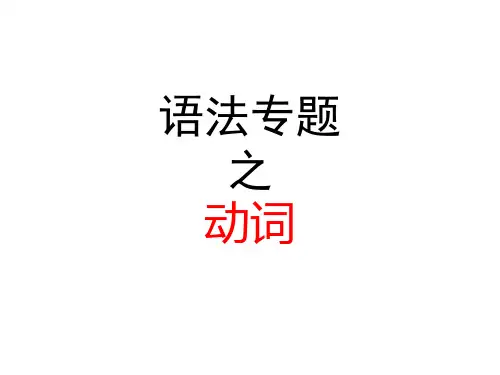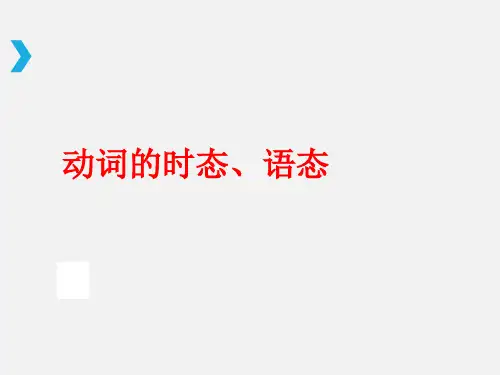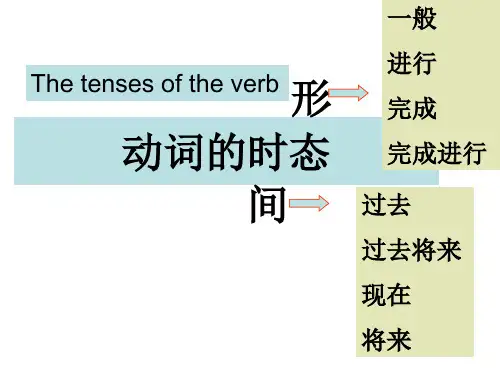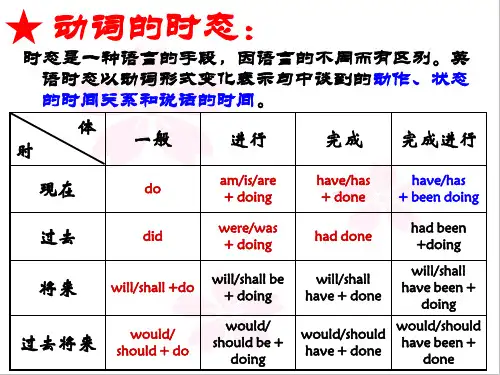②在条件状语从句和时间状语从句中用一般现在时表将来(主将从现)。 If you leave tomorrow , I'll see you at the airport. 如果你明天走,我到机场送你。 When she comes, I'll tell her about it. 她来时我将把这件事告诉她。 (2)现在进行时表将来 现在进行时表示将来,往往是指计划好或准备要做的事。一些表示动作 转换的动词,如go, come, leave, start, begin,stay,take off,arrive等,或 者也称为位移性动词,其进行时表示马上要做某事。
• He used to get up early . 过去他总是早起。(现在不这样了) • He will be used to getting up early . 他将会习惯早起。 • Wood is used to make paper. 木材被用来造纸。
(三)一般将来时
1、表示将要发生的动作或存在的状态,常用的时间状语有later(on), soon, in a month, next time, from now on, tomorrow等。 I shall be eighteen years old next year. 明年我就十八岁了。 2、一般将来时的其它表示形式 (1)一般现在时表将来 ①按照计划或时刻表要发生的事情。 The new library opens next month. 新图书馆下月开放。 The plane takes off at 3:00 P.m. 飞机于下午三点起飞。
We are about to discuss this problem.我们将马上讨论这个问题。 They were about to leave when the telephone rang. 他们正要离开时电 话响了。








